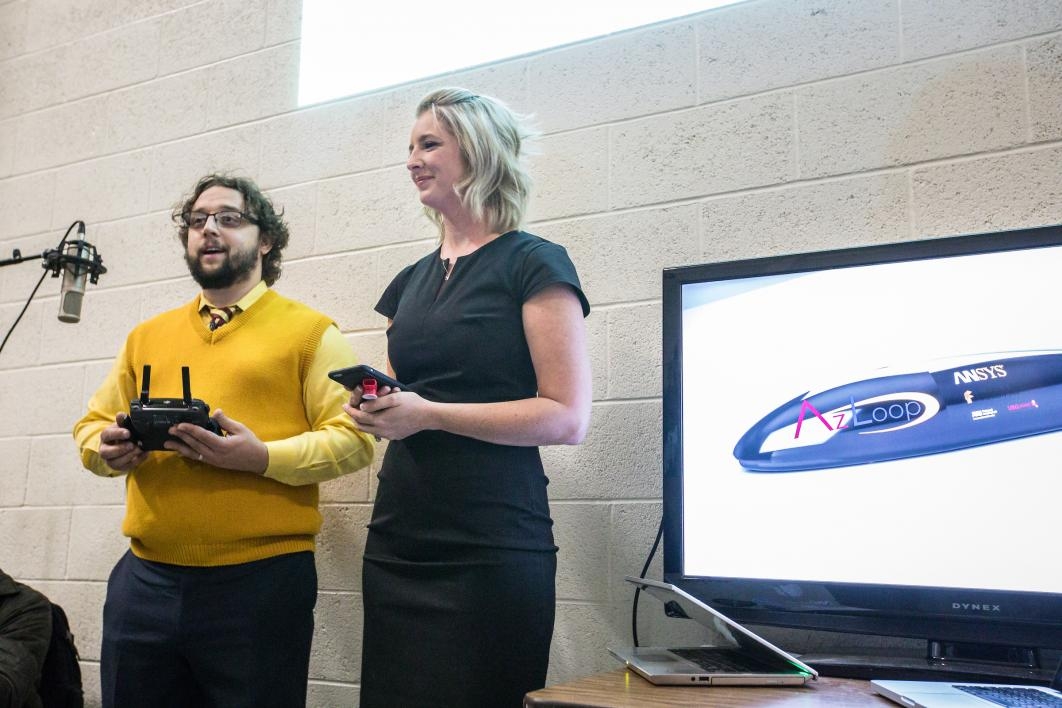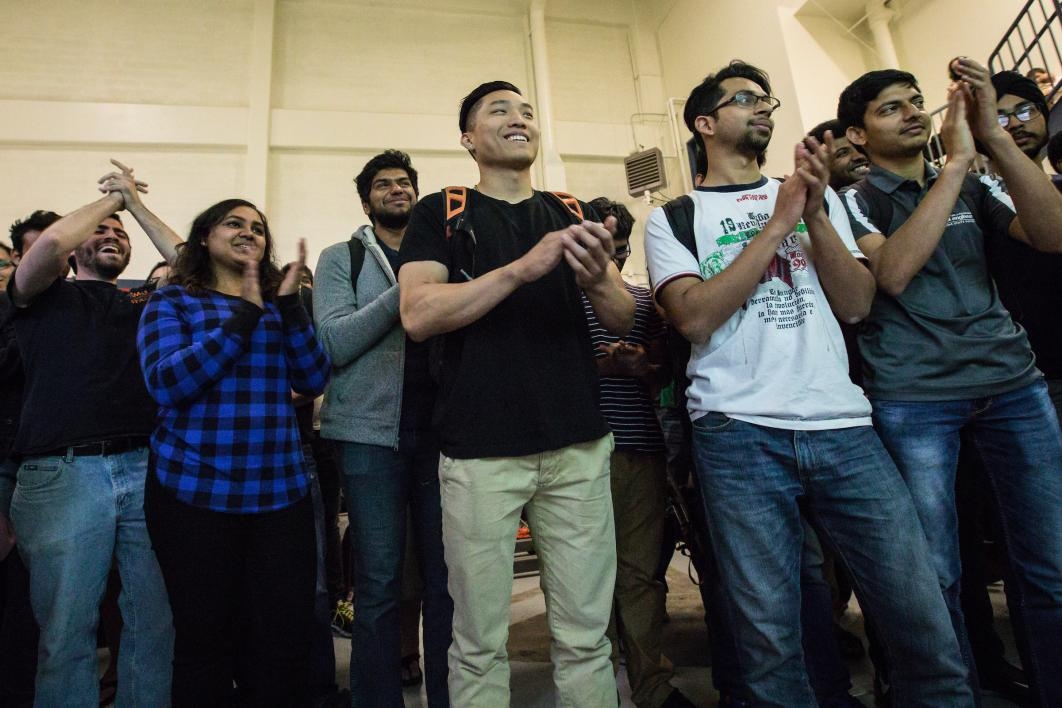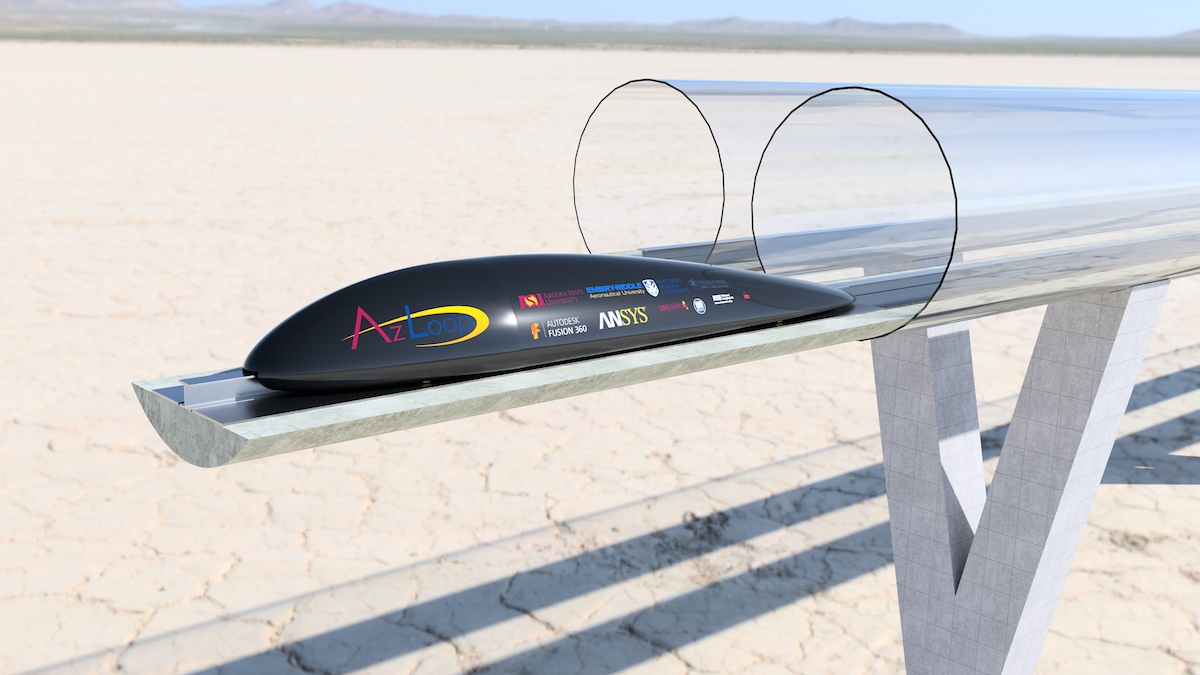ASU-led team advances in SpaceX Hyperloop competition
AZLoop team members learn their design is one of 24 finalists from a field of about 1,300
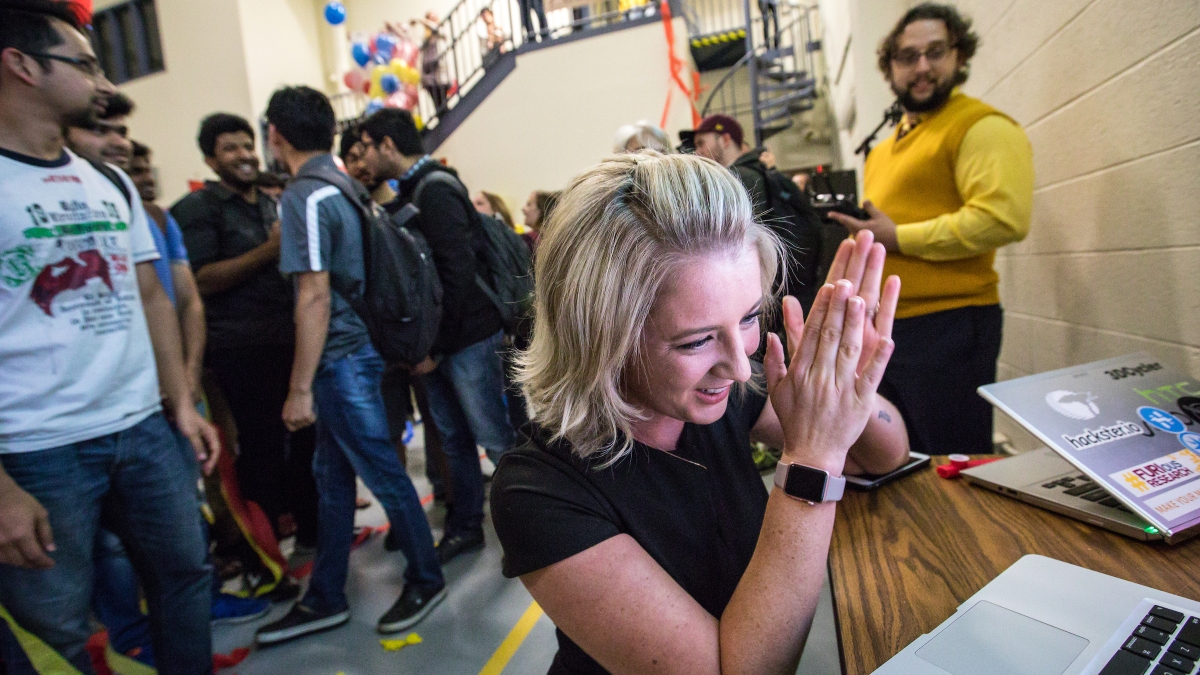
Aerospace transportation and manufacturing firm SpaceX has selected an ASU-led team to advance in its worldwide Hyperloop competition, which aims to create a futuristic, regional transit system that hits speeds of up to 750 mph.
The SpaceX challenge invites college students to design and build transportation pods that zip through a tube-based track. Eventually, it could result in a travel network that gets users from Phoenix to San Diego in about 30 minutes, or from Los Angeles to San Francisco in less than an hour.
The field started with about 1,300 teams last year and has been narrowed to 24.
AZLoop leaders Lynne Nethken and Josh Kosar, students in the Ira A. Fulton Schools of Engineering, announced the selection to their team Friday night.
“We are very excited to let you know we’ve proceeded to the next round,” project lead Nethken said as the room erupted into applause and balloons dropped. “This has not been an easy project. There has been a lot of blood, sweat and tears.”
Video by Ken Fagan/ASU Now
More than 100 students are involved in AZLoop from an array of disciplines that include engineering, robotics, physics, astrobiology, marketing and business management. Aside from Arizona State University and its Thunderbird School of Global Management, students from Embry-Riddle Aeronautical University and Northern Arizona University are part of the group that meets each week at ASU’s Polytechnic campus.
SpaceX’s letter to the team said officials were “extremely impressed with your design and we’re excited to see what you build.”
AZLoop will now put together a full-size, half-mile test track. Organizers are discussing permitting with the city of Mesa.
Arizona State University President Michael Crow pledged his support in a video address. “You guys have got one of the ideas to go forward,” he said. “Good luck!”
Team leaders have said their marketing division has helped secure funding. To this point, ASU’s support has included lab space and prototype materials. Project co-lead Kosar has said, “we’ve got the resources.”
Construction on the test track is expected to begin at the end of May. It will take six weeks to build, Nethken said.
The first trial run could begin as early as mid-July.
The final round is set for judging in August. SpaceX is headquartered in Hawthorne, California, near Los Angeles.
“We are literally going to change the world by helping develop this technology, and that is something that not many people get to be a part of,” Nethken told the team. “It truly shows that ASU is the leader in innovation anywhere. Let’s win this!”
Photo: The mood was festive at ASU's Polytechnic campus Friday after members of AZLoop learned their team had been selected to advance in SpaceX's Hyperloop competition. Lynne Nethken, project lead and mechanical engineering graduate student at Arizona State University, talks through video chat with students from Prescott's Embry-Riddle Aeronautical University following the announcement. AZLoop is one of 24 finalist teams selected from a field that started with about 1,300 entries. Photo by Charlie Leight/ASU Now
More Science and technology

Advanced packaging the next big thing in semiconductors — and no, we're not talking about boxes
Microchips are hot. The tiny bits of silicon are integral to 21st-century life because they power the smartphones we rely on, the cars we drive and the advanced weaponry that is the backbone of…
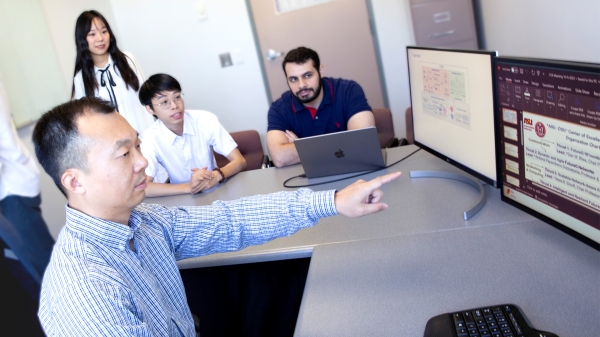
Securing the wireless spectrum
The number of devices using wireless communications networks for telephone calls, texting, data and more has grown from 336 million in 2013 to 523 million in 2022, according to data from U.S.…
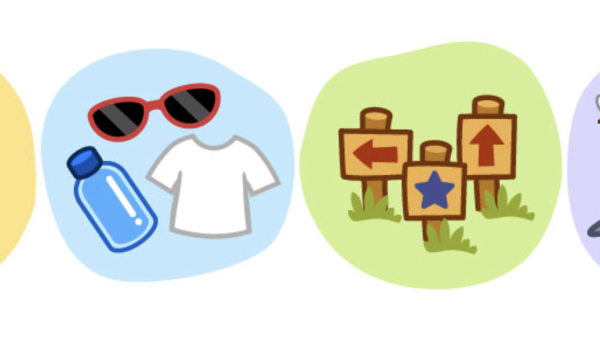
New interactive game educates children on heat safety
Ask A Biologist, a long-running K–12 educational outreach effort by the School of Life Sciences at Arizona State University, has launched its latest interactive educational game, called "Beat the…
